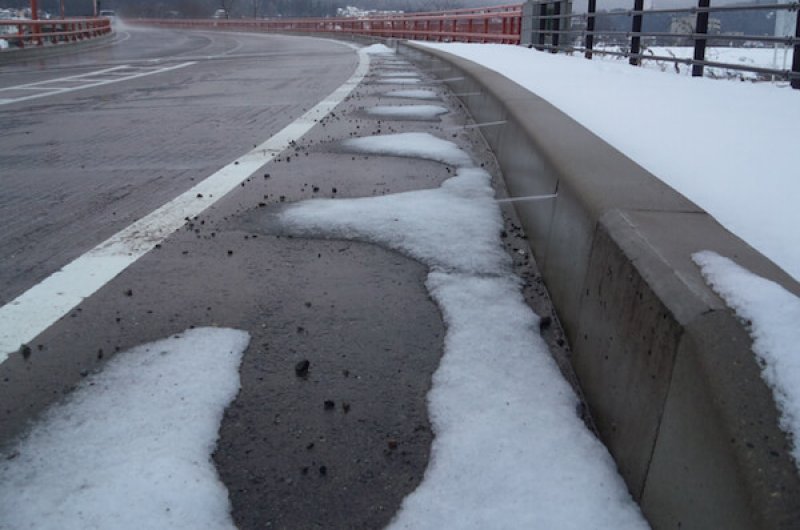Because concrete is porous and absorbs liquid, [temperature] changes often make its surface flake and peel. But researchers say a new process can help prevent such deterioration.
…
[Materials scientist and architectural engineer Wil] Srubar’s laboratory looked to the natural world, specifically “antifreeze” proteins that let some fish and bacteria endure frigid temperatures. In cells, these molecules cling to ice crystals’ surfaces and prevent them from growing too large—but they do not function in highly alkaline cement paste, a key concrete ingredient. So the researchers tried a tougher substance with similar properties: a polymer called PEG-PVA, which is currently used in time-released pharmaceutical pills.To test it, the team mixed several batches of concrete, including one control, one with air bubbles and a few with different concentrations of the PEG-PVA additive. After 300 consecutive freeze-thaw cycles, the quality of the control sample plummeted while others maintained their integrity.
Srubar has filed a provisional patent and hopes to bring the PEG-PVA process to market within five years. Meanwhile he continues the hunt for molecules that mimic antifreeze proteins’ behavior. “Everybody in my lab is convinced that nature has solved all of our problems for us,” he says. “We just have to know where to look.”































